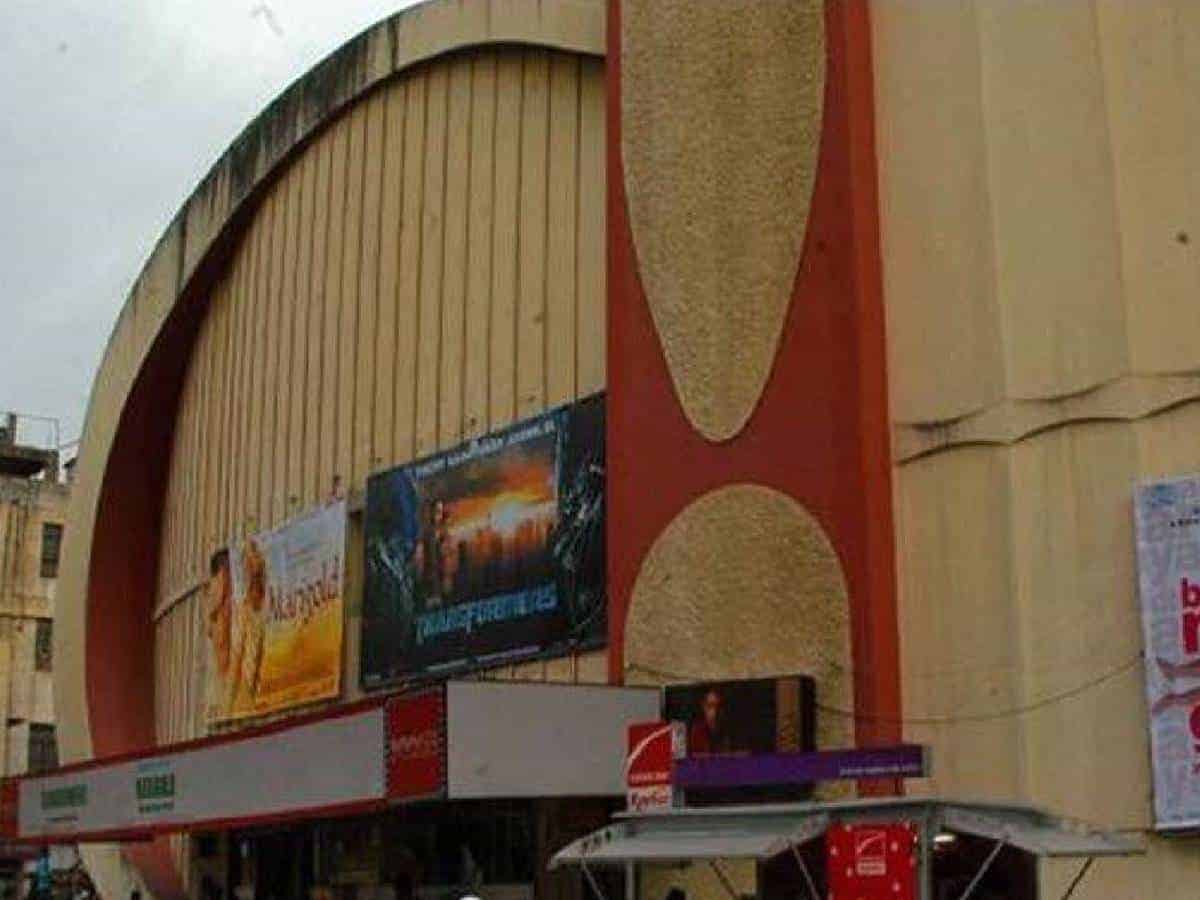Yeh mahlon ye taḳhton ye tajon kī duniya
Yeh insan ke dushman samajon ki duniya
Yeh daulat ke bhuke rivajon ki duniya
Yeh duniya agar mil bhi jaae to kya hai?
As the mellifluous voice of Mohammed Rafi began reverberating in the theatre signaling the final moments of the film Pyaasa, the crowds standing in the queue at the ticket counter outside the theatre waiting for the commencement of the next show were ecstatic.
So was I, standing in the queue at the Rs 2.50 ticket counter. The rush was heavy, but I ensured that I would get the ticket to watch one of the masterpieces of Guru Dutt, which I had been longing to see for years.
It was Palace Theatre at the right side of the Abids Circle, which was regularly screening golden oldies of Bollywood, whether it was Pyaasa or Taj Mahal or Mughal-e-Azam and of course, all-time hit Baiju Bawra.” It was my favourite joint to watch films in early 1980s, when I was doing my post-graduation in Osmania University.
Another theatre, closer to the Palace was Zamarrud Mahal, which was also perhaps built during the Nizam Period. I watched quite a few old classics there, but I distinctly remember Rajendra Kumar-Mala Sinha-starrer Dhool Ka Phool, and its memorable song of Sahir Ludhianvi – Tu Hindu Banega Na Musalman Banega, Insan Ki Aulad Hai, Insan Banega..” I was told Zamarrud had separate enclosures for men and women audiences in tune with the customs prevailing there.
Neither Palace nor Zamarrud is there for us to go now. They paved the way for high-rise malls and commercial complexes.
Not just these two, one can’t find any of those old single-screen theatres that provided entertainment to the people till ‘90s. Lata Theatre at Nampally, where I watched Haqeeqat and felt goose bumps on listening to Rafi’s song – Kar Chale Hum Jaan-o-tan Saathiyo.., Asha theatre at Shahalibanda, where I watched Dilip Kumar-starrer Kohinoor only for the song Madhuban Mein Radhika Nache Re.., Prabhat Theatre at Kacheguda where I saw films like Raj Kumar and Madhumati, and Dilshad Theatre at Sultan Bazar which was exclusively screening Raj Kapoor films – the list is too big to mention here – are no more in existence. We can’t find even their reminiscences in these areas.
As the historic city of Hyderabad began growing into a modern metropolis and with the tastes of audiences undergoing a sea change, several single screen theatres in Hyderabad have undergone transformation. Some turned into multiplexes, some others into commercial malls and a few others into function halls.
Take the case of Sangeeth Theatre at Secunderabad. It was one of the few theatres in the city which was screening only English films till 2007. It was later demolished for the construction of a multiplex.
Pandemic effect on theatres
The Coronavirus pandemic that wreaked havoc with the lives of the people has had a terrible impact on the entertainment industry across the globe and theatres have become the worst hit due to continued lockdown and stringent restrictions on public gathering to prevent spread of the dreaded virus.
In Hyderabad, too, the cinema theatres have been forced to remain shut for several months since March 2020. Though they were opened for a brief period after the first wave of the pandemic, they were again forced to down the curtains since the outbreak of the second wave in March/April.
As the managements were not in a position to sustain losses due to high maintenance costs, including increased power bills, many single screen theatres in Hyderabad have been wound up permanently.
In the last couple of months, at least a dozen single screen theatres have downed their shutters. Prominent among them include: Sudershan 70 mm at RTC Cross Roads, Shanti Theatre at Narayanguda, Santosh Swapna at Abids, Galaxy Theatre at Tolichowki, Amba Theatre at Mehdipatnam, Sree Mayuri Theatre at RTC X Roads, Sree Rama at Bahadurpura, Sree Sai Raja Deluxe at Musheerabad and Sampoorna Theatre, Vanasthalipuram.
“We cannot continue to pay salaries to the employees and incur huge maintenance costs. There is no point in running the theatres due to prolonged uncertainty. Even if the government allows the theatres to restart their operations, we may not screen the films to full-houses as the people are still apprehensive about the pandemic,” a theatre manager said.
Even before the outbreak of COVID-19 pandemic, the single screen theatres had been running in losses due to the advent of multiplex culture and the people had been used to watching films in a cosy ambience. The pandemic further ruined these theatres.
Many of the owners of these closed theatres are now planning to lease them out to commercial outfits like supermarkets, or give them for development by real estate dealers. Some others are optimistic that things will get back to normal in the next few months.
With the Telangana government giving a nod for the reopening of theatres with effect from Friday, many theatres have witnessed a decent footfall on the first day. But the uncertainty continues to loom large on the theatre industry, as the state is gearing up for a third wave of Coronavirus pandemic.
Maybe, theatre managements in Hyderabad will have to find innovative ways to attract the audiences – like the latest trend of Drive-In Theatres where the audiences can watch the films on an open-air big screen, sitting in their cars!
A Srinivasa Rao is Senior Journalist based out of Hyderabad covering developments in Andhra Pradesh and Telangana. He has over three decades of reporting experience.

